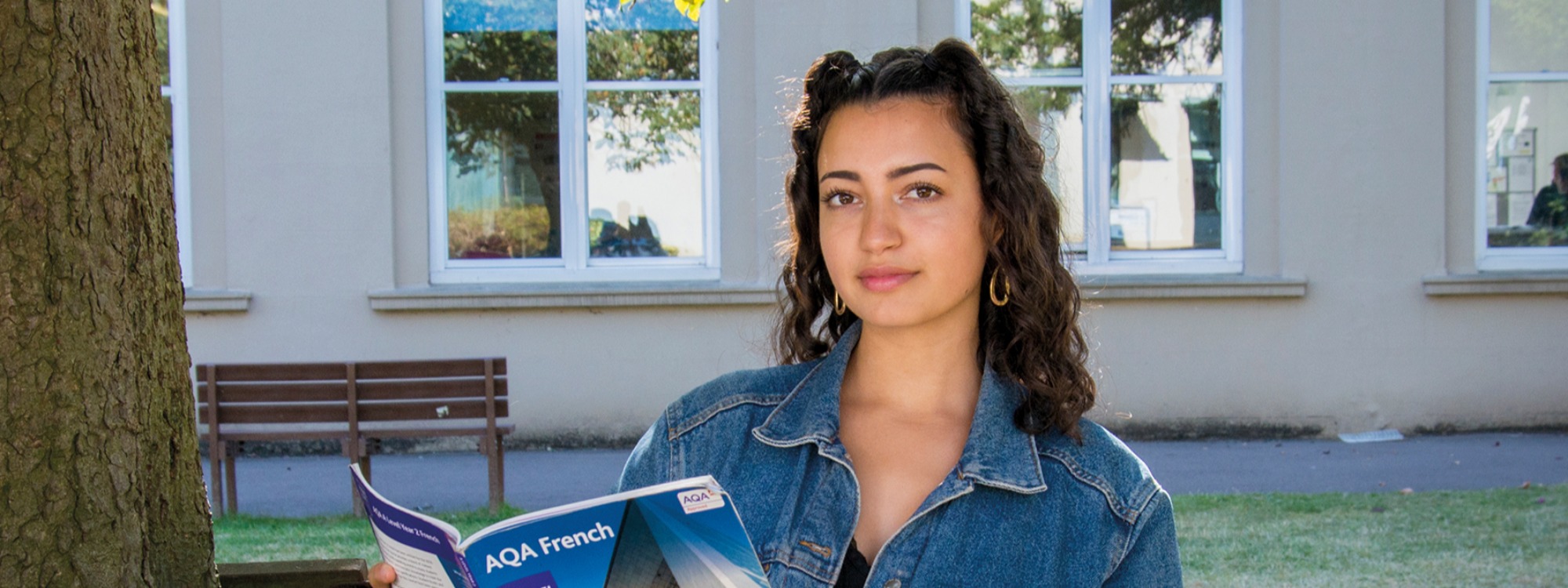- Home
- Curriculum
- A Level Subjects
- French
French
Why study French?
Studying French opens doors to a rich world of language, culture, and international opportunities.
It is spoken by over 300 million people worldwide and is an official language in 29 countries. Whether you're passionate about travel, global affairs, literature, or international careers, French offers an advantage. As well as improving your communication skills, studying French enhances your understanding of grammar, critical thinking, and cultural awareness — all highly valued by universities and employers.
Course overview
This AQA A-level course builds on your existing knowledge of French, aiming to develop fluency, confidence, and an appreciation of Francophone culture.
You will study:
Social issues and trends
- The changing nature of the family; the cyber society; the place of voluntary work
- Positive features of a diverse society; life for the marginalised; how criminals are treated
Political and artistic culture
- A culture proud of its heritage; contemporary francophone music; cinema
- The right to vote and political commitment of young people; demonstrations, strikes; politics and immigration
You will also study one French-language film (La Haine) and one novel (No et Moi) and conduct an Independent Research Project on a topic of your choice related to the Francophone world.
Skills gained include listening, reading, speaking, and writing in French, as well as translation, analysis of texts and films, and independent research.
How is the course assessed?
- Paper 1: Listening, Reading & Writing (2 hours 30 mins) – 50%
Includes listening, reading, translation into English and French. - Paper 2: Writing (2 hours) – 20%
Two essays, one on the film and one on the novel. - Paper 3: Speaking (21–23 minutes, including 5 minutes prep) – 30%
A discussion based on a stimulus card and a presentation/discussion of your Independent Research Project.
What will I do in lessons?
Lessons will include a mixture of speaking practice, grammar work, vocabulary development, and exploration of texts, films, and authentic materials. You'll engage in debates, listening activities, presentations, group work, and guided analysis. Lessons are interactive and varied, with a strong focus on real-world language use and cultural depth.
What Independent study will be expected?
You will be expected to complete around 5 hours of independent study per week. This includes:
- Vocabulary learning and grammar consolidation
- Reading and listening practice using authentic resources
- Preparation for speaking sessions
- Extended writing tasks
- Research and preparation for your Independent Research Project
Access to online platforms such as Kerboodle, and the AQA resources will support your study.
Exam Board
AQA
GCSE entry requirements
Grade 6 or above in GCSE French. A genuine interest in language and culture and a willingness to participate actively in speaking are essential.
- 5 in Mathematics required
- 6 in English Language required
- 6 in French required
What A Levels go well with this one?
French complements a wide range of subjects, including:
- English Literature or Language
- History
- Politics
- Economics
- Law
- Another language (e.g. German, Spanish)
What can I do beyond A Levels with this subject?
French is highly valued in higher education and the workplace. You can pursue:
- Degrees in Modern Languages, Law with French, International Relations, Business and European Studies
- Careers in translation, interpreting, teaching, diplomacy, international development, journalism, and tourism
- Opportunities to study or work abroad through Erasmus+, international internships, or volunteering
Language skills are in high demand in an increasingly global job market.
Frequently asked questions
Do I need to be fluent already?
No, the course is designed to build on GCSE knowledge. Commitment and regular practice will develop fluency over time.
Will I get help with grammar?
Yes – grammar is taught explicitly and practised regularly throughout the course.
Is it just about grammar and vocabulary?
Not at all – you’ll explore film, literature, culture, and social issues, all while developing your language skills.
Is the Independent Research Project difficult?
It’s a challenge, but also a great opportunity to study something you're passionate about. You'll receive lots of guidance.
